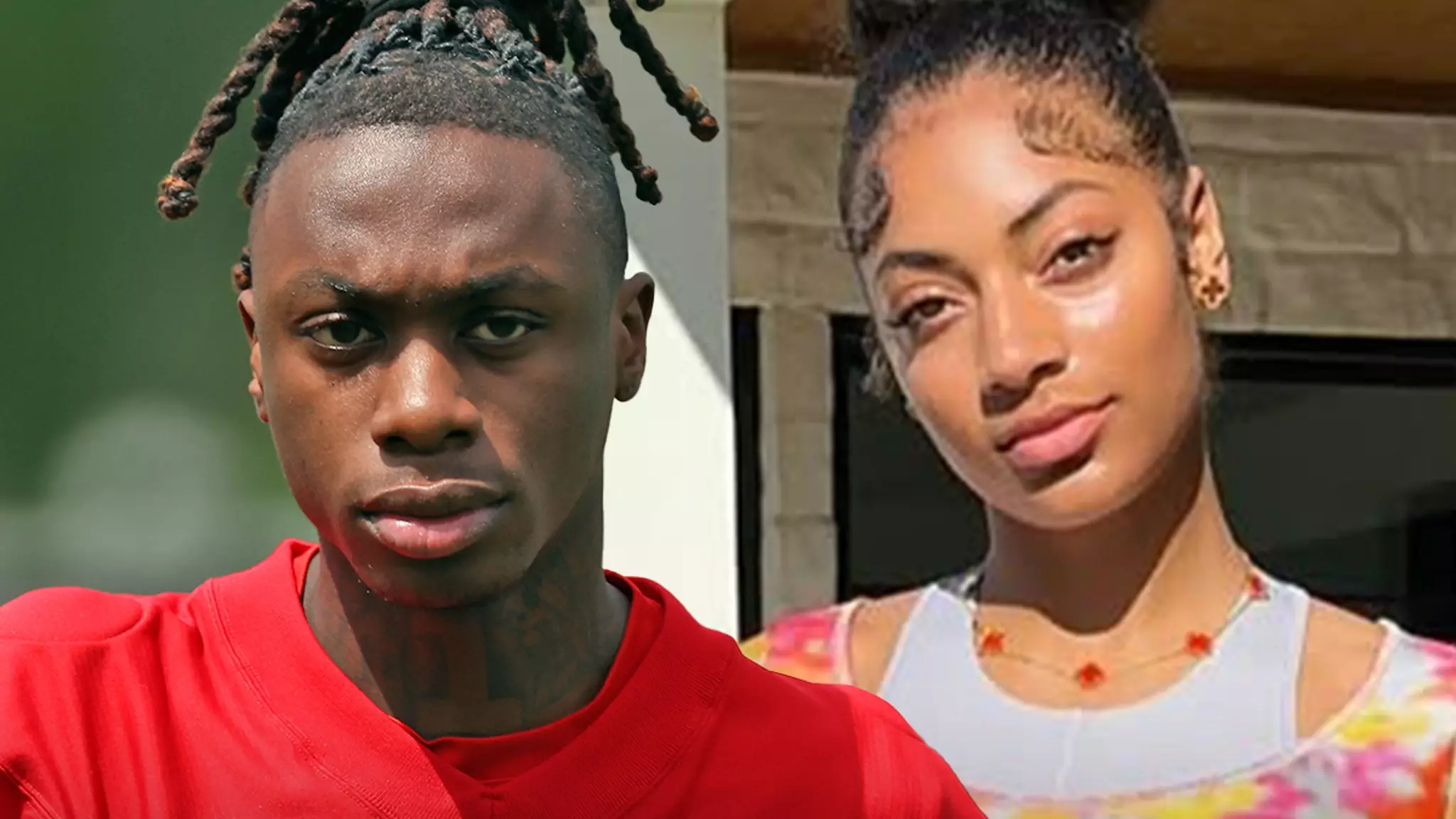In a surprising turn of events, NFL player Xavier Worthy has found himself entrenched in escalating legal battles surrounding accusations of domestic violence from his estranged fiancée, Tia Jones. Worthy recently filed court documents framing himself as the victim, asserting that Jones was unfaithful during a critical period of his professional life, namely as he geared up for Super Bowl LIX. The portrayal of himself as the wronged party raises profound questions about the dynamics of their relationship and the broader implications of such claims in the world of professional sports.
Worthy’s narrative reveals that the couple first crossed paths at a steakhouse in Austin in late 2023, marking the inception of a relationship he found promising. However, the romantic facade took a sharp turn by fall 2024 when Worthy sensed a shift in Jones’ demeanor, which he attributes to infidelity. The fact that he sought the services of a private investigator suggests a deep-rooted mistrust that may have eroded the foundation of their relationship. This act of surveillance reveals a disturbing climate of suspicion, an undercurrent that could lead to unforeseen consequences.
Disputes and Destruction
The turning point in their tumultuous relationship culminated in a confrontation that resulted in Worthy’s arrest. The specifics of the altercation—Jones allegedly damaging valuable property, including a $3,000 Rolls Royce key fob and items from Worthy’s gaming room—paint a chaotic picture. While Worthy contends that he acted out of fear for his safety and his property, the underlying issues of jealousy and control appear to fuel their conflict. The incident, which spiraled from a dinner dispute into physical confrontation, ultimately highlights the volatile blend of passion and pain that can emerge in fracturing relationships.
What adds another layer to this saga is the considerable financial fallout. After being released from jail, Worthy reported over $300,000 worth of valuables missing from his home, allegedly taken by Jones. This theft adds a grim final act to the narrative, underscoring the financial stakes involved. In a society where wealth is often equated with power, this instance may reflect deeper societal issues regarding trust and the potential for exploitation in relationships marked by disparity in fame and fortune.
The Legal Maneuvering of Victimhood
In what can only be described as a battle of narratives, both parties have filed protective orders, each positioning themselves as the primary victim. This legal wrangling raises critical questions about the complexities of intimate relationships, especially for individuals in the public eye. The frequency with which domestic violence claims surface in high-profile cases warrants scrutiny, as it shapes public perception and has implications for both careers and the mental well-being of those involved.
While Worthy insists that Jones is the aggressor, she, too, has publicly declared herself a victim, asserting multiple incidents of violence at his hands. This contradictory ballet of victimhood and blame is not just a personal dilemma; it resonates with broader social discourse on accountability, safety, and the dark side of fame.
As their case progresses, the upcoming court hearings promise to unveil more than just a story of love gone wrong. Rather, they may illuminate the very human vulnerabilities embedded in personal relationships that often play out against a backdrop of public scrutiny.

